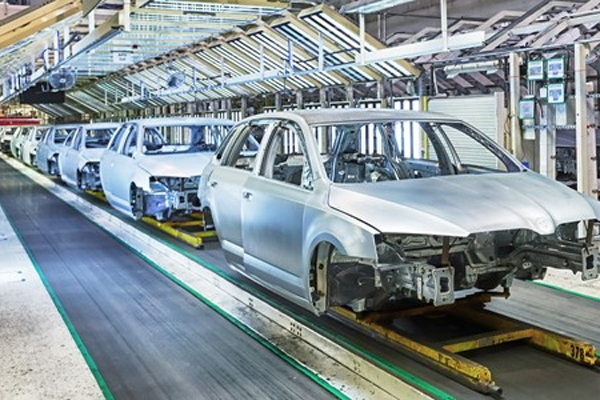Industry 4.0: Connecting Machines and Products for Smart Manufacturing
In traditional manufacturing, both simple and complex product assembly lines require human interaction for success. These interactions include monitoring part inventory levels, ensuring machines are maintained, and identifying possible process improvements. By leveraging the Internet of Things (IoT) and placing RAIN RFID tags and readers on both products and machines, manufacturers can enable Industry 4.0.
In traditional manufacturing, both simple and complex product assembly lines require human interaction for success. These interactions include monitoring part inventory levels, ensuring machines are maintained, and identifying possible process improvements. By leveraging the Internet of Things (IoT) and placing RAIN RFID tags and readers on both products and machines, manufacturers can enable Industry 4.0 – the term coined for smart factories where physical processes are machine monitored and machines and products communicate and work together, with humans, in real time. Industry 4.0 also enables data streams to be collected, giving manufacturers advanced analytics for better business decisions.

RAIN RFID is an integral part of the Internet of Things and a key enabler of Industry 4.0. With a RAIN RFID solution, products are tagged and readers are placed around a facility or embedded in machines, allowing manufactures to identify a product’s status and location, automate processes, streamline machine maintenance to prevent downtime, and allow for product customizations based on customer preference. RAIN RFID can be easily integrated into part labels at their source, making tagging easy. And, because RAIN RFID offers long read ranges without requiring costly active tags, integration costs are lower than other RFID implementations.
Better analytics for better businesses
Let’s take a closer look at how RAIN RFID is enabling Industry 4.0 by following its use in the automotive industry. Cars are complicated to build—lots of moving parts and customization. In manufacturing situations like these, RAIN RFID can play an essential role in keeping production up to speed:
- Tagging each and every part for easy inventory monitoring
- To begin, the car’s frame is brought into the facility, placed on a conveyor and slowly pulled through the assembly line. From there, parts are added (think doors, engine, seats, electronics and more). These parts must be locatable within a facility and replenished at a just-in-time cadence that ensures the line doesn’t stop. By tagging parts, manufactures can monitor inventory levels and ensure items are replenished in time, thus reducing overhead costs.
- Keeping track of the manufacturing process
- As a tagged product moves through the assembly line, it encounters dozens of machine interactions. If tagged with a writeable RAIN RFID tag, the product’s status can be updated at each step of the assembly process. With this information, manufacturers can monitor a specific product’s status as it moves through the facility.
- Enabling easy customization
- Tagging products also gives manufacturers flexibility. Instead of having to set up machines to build one variation of a product at a time, machines can be programed to build 100’s of configurations. A tagged product can then identify what customizations it needs, enabling the machine to perform the necessary operation on a per-product basis.
- Ensuring consumer safety during recalls
- When products and parts are tagged, specific parts can be associated to the specific product they’re on. This gives greater visibility into a product line, allowing the automaker to only recall the specific products that contain the recalled part and thus eliminating large-scale recalls on unaffected products.
- Valuable insights into facility processes
- Manufacturers can also leverage a RAIN RFID infrastructure to collect valuable data in their facility. With this data, manufacturers get, for the first time, precise production data so they can identify bottlenecks in the production line. They can also use this data to predict machine down times, allowing them to do preventative maintenance
- Protecting manufacturing jobs
- It’s important to remember that Industry 4.0 doesn’t replace workers. Rather, it helps the workforce move into more skilled positions rather than doing basic product assembly or monitoring a single machine. Instead, workers can manage multiple machines at one time, and use collected data to further improve processes throughout the facility
As manufacturers begin to deploy RAIN RFID broadly, smart factories will become the standard model for manufacturing, driving forward business by reducing cost and increasing efficiencies. And, the data collected from these deployments will give new insights into business processes that will have an even broader reaching impact in business worldwide.
- Article tagged as:
Wednesday, July 29, 2015
Sign Up for the latest news
